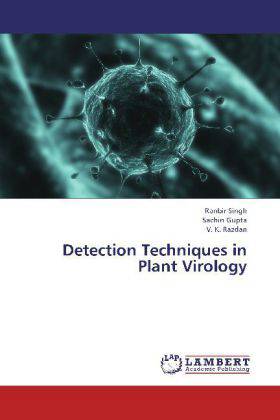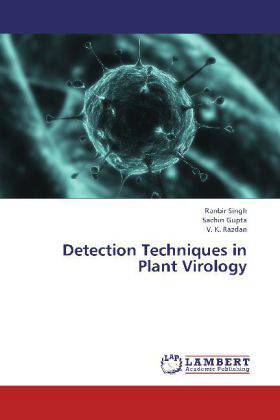
- Afhalen na 1 uur in een winkel met voorraad
- Gratis thuislevering in België vanaf € 30
- Ruim aanbod met 7 miljoen producten
- Afhalen na 1 uur in een winkel met voorraad
- Gratis thuislevering in België vanaf € 30
- Ruim aanbod met 7 miljoen producten
Zoeken
€ 54,95
+ 109 punten
Omschrijving
Agricultural technologies, unlike many other technologies, have a major impact on human being and other life forms. This is because of the huge magnitude of this human activity - farming is spread over a major part of this planet's land and is the primary occupation of millions of people, but a great portion of the agricultural crops have been affected by the various fungal, bacterial and viral diseases. Among the different diseases, the plant viral disease causes the great damage to the agricultural and horticultural crops. Viruses are very small (submicroscopic) infectious particles composed of a protein coat and a nucleic acid core. They carry genetic information encoded in their nucleic acid, which typically specifies two or more proteins. The first requirement for the proper management of such diseases is the proper identification of the causative virus. Hence the systemic understanding of the various aspects of the plant disease, the adoption of the proper and relevant experimental methodology is of utmost importance.
Specificaties
Betrokkenen
- Auteur(s):
- Uitgeverij:
Inhoud
- Aantal bladzijden:
- 68
- Taal:
- Engels
Eigenschappen
- Productcode (EAN):
- 9783659323348
- Verschijningsdatum:
- 18/01/2013
- Uitvoering:
- Paperback
- Afmetingen:
- 150 mm x 220 mm
- Gewicht:
- 107 g

Alleen bij Standaard Boekhandel
+ 109 punten op je klantenkaart van Standaard Boekhandel
Beoordelingen
We publiceren alleen reviews die voldoen aan de voorwaarden voor reviews. Bekijk onze voorwaarden voor reviews.








